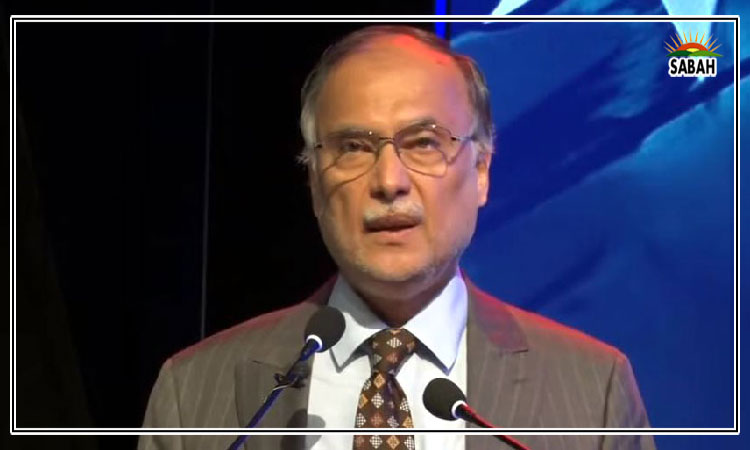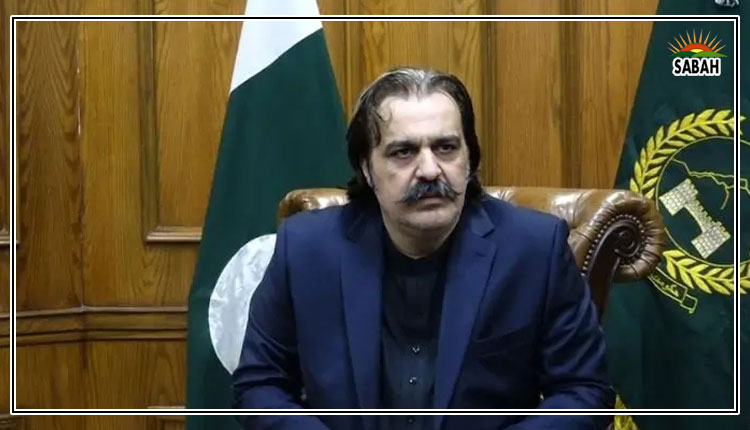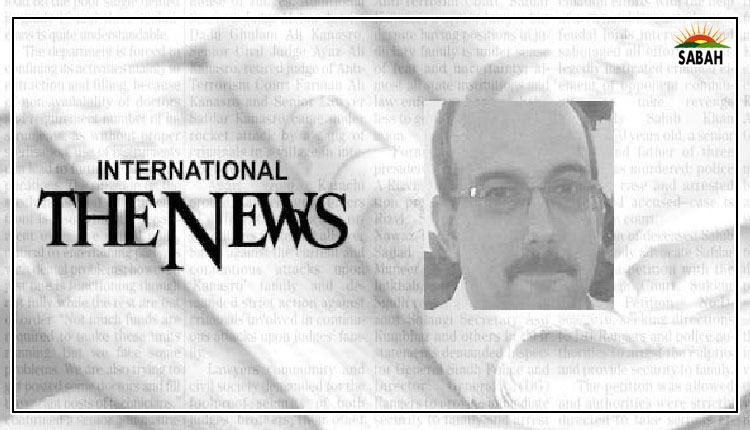Constitutional amendments: Part – V …. Dr Naazir Mahmood
In 1993, Benazir Bhutto assumed office after winning elections under a caretaker government. She appointed Farooq Leghari as the new president of Pakistan, expecting to complete her five year term; this did not happen. In 1994, when chief justice Nasim Hasan Shah retired, she appointed Sajjad Ali Shah as the new chief justice.
Justice Sajjad Ali Shah had opposed the restoration of the Nawaz Sharif government in 1993, and Benazir thought that he would be sympathetic towards her; this never happened as well. As Benazir took him for granted and started interfering in judicial appointment much in the same fashion as her father had done nearly two decades earlier, Sajjad Ali Shah was not amused. Her relations with the president also nosedived, and in November 1996, president Farooq Leghari dismissed her on grounds of corruption and poor law and order. During her three year premiership, she did not introduce any amendments.
In 1997, Nawaz Sharif once again won elections with a controversial two-thirds majority and found himself in a position to do away with the notorious 8th Amendment. In April 1997, the new Nawaz Sharif government moved and passed the 13th Amendment within minutes, by relaxing the usual rules regarding such amendments.
The 13th Amendment undid the powers of the president including 58-2(b), but there were no changes in the religious contents of the 8th Amendment. It is wrong to assume that the 13th Amendment removed the 8th Amendment; it simply reduced the power of the president of Pakistan and transferred them to the prime minister. It deprived the president of Pakistan of his/her powerto dissolve the National Assembly, call for new elections or to dismiss the prime minister. Since the bill got through with a two-thirds majority that the second government of Nawaz Sharif enjoyed, nobody could challenge it. Now only the prime minister had the authority to advise the president on the appointments of chiefs of the armed forces. In addition, only a prime minister could appoint the chairman of Joint Chiefs of Staff Committee and governors.
The amendment also restored reserved seats for women in parliament that the Benazir government had refused in 1989 under the proposed Ninth Amendment Bill. The PPP had stopped the bill while promising to introduce a new one, which it never did. Now the governors of provinces did not have the authority to dissolve provincial assemblies under Article 112(2) of the constitution.
Essentially, the 13th Amendment was not a complete repeal of the 8th Amendment; it simply divested the president and the governors of their discretionary powers. Some democracy-loving people who believed in the supremacy of parliament naively hoped that after the dissolution of the four elected assemblies and the dismissal of the four elected prime ministers in eight years Junejo (1988), Benazir Bhutto (1990), Nawaz Sharif (1993), and again Benazir Bhutto in 1996 the 1973 constitution was finally back in place, not counting the religious insertions by Gen Zia.
Almost everyone hoped that a complicated and sensitive constitutional issue had been resolved in an amicable way through consensus. The people of Pakistan anticipated that through the 13th Amendment, a new era of democratic freedom and political stability would usher in. But then Nawaz Sharif went on to become another authoritarian ruler. He and his party had a certain sense of immunity that placed Pakistan on the second worst score in the world on Transparency Internationals Corruption Perception Index. A few months later, the 14th Amendment got through parliament. Three months after the 13th Amendment, in July 1997, the second Nawaz Sharif government introduced the 14th Amendment, which subjected members of parliament to fairly strict party discipline by giving party leaders unlimited authority to dismiss legislators who failed to vote per the directions of the party head. This eliminated any chances of a prime minister of losing his office as a result of defections from his party. Even a no-confidence motion could not remove a prime minister if his party members defected or sided with another party. This had both negative and positive implications, as has become evident recently too.
Soon enough, the second Nawaz Sharif government also became increasingly unpopular after these amendments even though it enjoyed a two-thirds majority in parliament.
Nawaz Sharif developed differences with army chief Jahangir Karamat, chief justice Sajjad Ali Shah, and president Farooq Leghari. The country was looking like a civilian dictatorship almost in the same fashion as the country had experienced under ZA Bhutto in the 1970s, of course without the notorious federal security force. The PPP under Benazir Bhutto had taken a big hit during the elections of 1997, and it was still wobbly.
Nawaz Sharif eroded his opposition easily, thanks to his absolute powers and the fact that any no-confidence motion had become impossible after the 14th Amendment. After the Supreme Court appointed five new judges, Nawaz Sharif did not like it and harshly criticized the SC, resulting in a contempt-of-court notice against him. Now the relationship between the chief justice and the PM became pretty bitter; Nawaz Sharifs partisans stormed the Supreme Court of Pakistan and a judicial machination led by other judges forced the chief justice out of office. President Farooq Leghari unable to do much also had to resign from his post in December 1997.
In 1998, the Nawaz Sharif government introduced the 15th Amendment bill, which got through the National Assembly in August but when it moved to the Senate it could not get approval before the coup of General Musharraf. The proposed 15th Amendment included the addition of the new Article 2B in the constitution and an amendment to Article 239. It sought to impose Shariah as supreme law in Pakistan in accordance with the Objectives Resolution of Pakistan that Gen Zia had incorporated into the main constitution.
The proposed 15th Amendment would have placed the federal government under an obligation to take steps to enforce Shariah. The federal government could take necessary action against any state functionary for non-compliance of Shariah. The same year army chief Jahangir Karamat also had to resign. The 16th Amendment, passed in August 1999, increased the validity of the quota system from 20 to 40 years. Ultimately, the 13th and the 14th Amendments could not save the prime minister when he tried to remove army chief General Pervez Musharraf in October 1999.
To summarize, during the first 26 years of the constitution, there were 13 approved amendments; and three proposed amendments that could not pass through both houses. Of the 13 amendments, seven were passed in the first five years under the ZA Bhutto government from 1972 to 1977.
The 8th Amendment that Gen Zia introduced and imposed was the most devastating and severely hampered the progress of democracy in the country, besides devouring four elected national assemblies. Benazir Bhutto during her two governments that lasted for less than five years combined did not pass any amendment. Nawaz Sharif managed to pass the 12th Amendment during his first government and the 13th, 14th, and 16th Amendments during the second government from 1997 to 1999.
To be continued
The writer holds a PhD from the University of Birmingham, UK. He tweets @NaazirMahmood and can be reached at: mnazir1964@yahoo.co.uk
Courtesy The News












